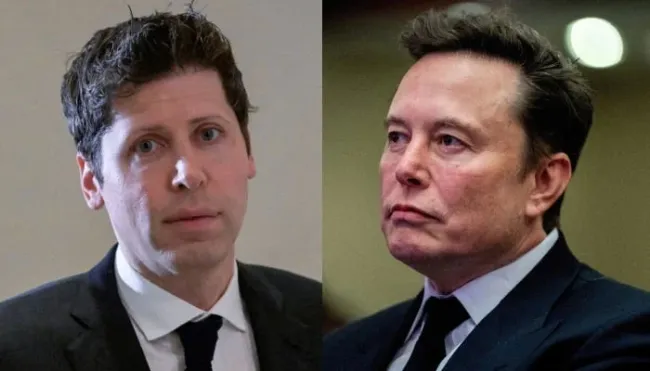Tech Titans at Odds: Sam Altman Rejects Elon Musk’s $97.4B Takeover Bid for OpenAI
The Offer and Its Immediate Dismissal
In a high-stakes showdown, OpenAI CEO Sam Altman has flatly rejected a staggering $97.4 billion acquisition bid from Elon Musk, declaring at the AI Action Summit in Paris that the ChatGPT-maker is “not for sale.”
Musk’s unsolicited proposal, backed by investors including x.AI, Baron Capital, and Endeavor CEO Ari Emanuel, aimed to acquire OpenAI’s assets and revert the company to its nonprofit, open-source roots. However, Altman wasted no time in rebuffing the offer, taking a jab at Musk on X:
“No thanks, but we’ll buy Twitter for $9.74 billion if you’re interested.”
Musk, who co-founded OpenAI with Altman in 2015 before parting ways in 2018 over strategic disagreements, has been a vocal critic of OpenAI’s pivot to a for-profit model. His bid sought to prevent the company’s full transition into a commercial entity, arguing it undermines OpenAI’s original mission of creating AI “for the benefit of humanity.” Despite this, Altman stood firm, asserting, “The board will make its decision, but our mission is not up for sale.”
A Rivalry That Won’t Die
This bid marks the latest escalation in a long-running feud between the two tech moguls. Musk has repeatedly sued OpenAI, accusing Altman of abandoning ethical AI development in favor of corporate interests, particularly Microsoft’s, which has poured over $14 billion into the company. Altman, on the other hand, sees Musk’s legal maneuvers and takeover attempt as little more than an effort to slow OpenAI down while his own AI venture, x.AI, struggles to keep pace.
The tension between them is deeply personal. Altman recently told Bloomberg that Musk operates from a place of insecurity, remarking, “I don’t think he’s a happy person.” Musk fired back on X, calling Altman a “fraud” and resurfacing a 2023 Senate hearing clip where Altman claimed he held no equity in OpenAI—an assertion that changed when the company shifted to a for-profit model.
OpenAI’s Governance Dilemma
At the core of this battle is OpenAI’s unusual governance structure. Originally a nonprofit, the company later created a for-profit subsidiary to secure funding, though its nonprofit board still controls the development of artificial general intelligence (AGI). Altman’s push to commercialize OpenAI fully would require compensating the nonprofit for its stake—a process Musk’s bid attempts to disrupt by setting a valuation benchmark.
Yet, Musk’s $97.4 billion offer is dwarfed by OpenAI’s skyrocketing market worth. In 2024, the company was valued at $157 billion, and recent projections from SoftBank and other investors suggest it could soon hit $300 billion. Legal analysts say the nonprofit board faces a tough decision: accepting Musk’s bid could contradict its mission, while rejecting it might be seen as undervaluing its financial stake.
Market Impact and Competitive Pressures
Musk’s bid comes amid intensifying competition in the AI space. Chinese firm DeepSeek has launched energy-efficient AI models that briefly shook Nvidia’s stock, while OpenAI responded by making its “o3-mini” AI available for free. Altman remains confident, telling Bloomberg, “We’ll just keep building the best technology.”
Meanwhile, OpenAI’s ambitious $500 billion ‘Stargate Project’ with Oracle and SoftBank—an AI infrastructure initiative reportedly backed by Donald Trump—has drawn skepticism from Musk, who claims the partners lack the necessary funding.
What Comes Next?
- Legal Battles: Musk’s lawsuits against OpenAI’s restructuring remain unresolved, with a federal judge yet to rule on his injunction request.
- Boardroom Decisions: OpenAI’s nonprofit board must weigh Musk’s bid against its long-term vision. Board Chair Bret Taylor dismissed the offer as a “distraction.”
- The AGI Race: Altman insists OpenAI’s primary focus is developing safe AGI, describing it as “AI systems capable of solving complex problems at a human level.”
Conclusion
Musk’s bid to take over OpenAI is more than just a corporate acquisition—it’s a battle of ideologies between two of AI’s most influential figures. Altman sees commercialization as essential to OpenAI’s growth and innovation, while Musk argues that his intervention is necessary to realign the company with its founding principles. As legal fights and boardroom deliberations unfold, the outcome of this power struggle will shape the future of AI and its governance for years to come.
